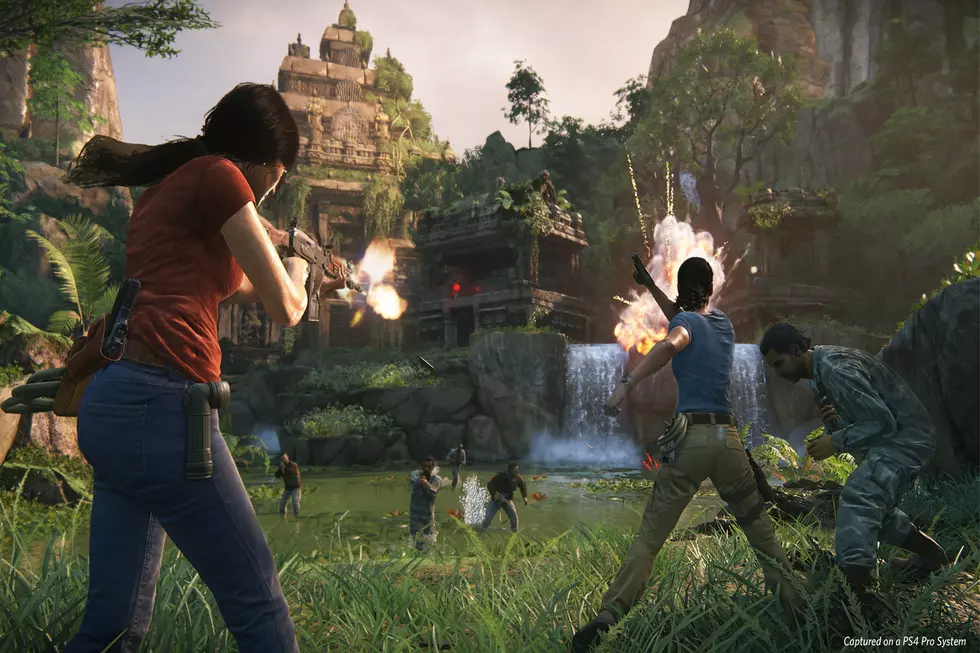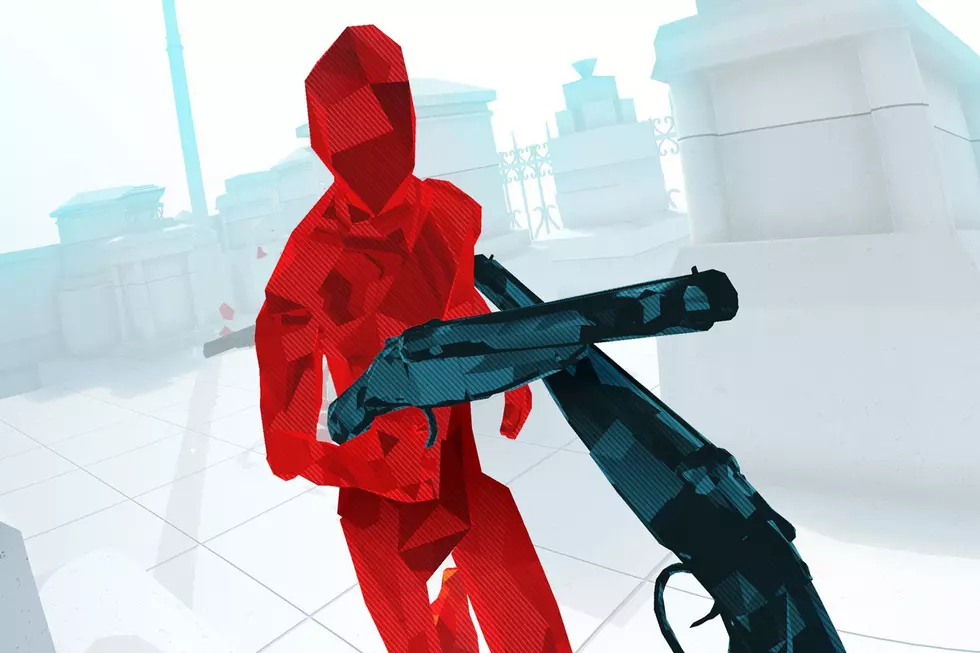
Persona 5 Review (PlayStation 4)
One of the tough things about growing up is realizing not everyone is good. You spend your entire childhood being told that adults have your back. Teachers, politicians, community leaders—they’re supposed to be looking out for you. When that turns out not to be the case, it can be a harsh reality check. Persona 5, the latest game in the long-running Shin Megami Tensei spinoff series, tasks you with controlling a group of teenagers dealing with this coming of age ritual, tasking the player with weeding out corruption and evil in Tokyo through otherworldly battles and personal relationships. It’s not a huge departure from the themes and gameplay of the last two Persona games, but there are enough successful tweaks to the formula that Persona 5 feels both familiar and wonderfully new.
Like all of the main-series Persona role-playing games before it, Persona 5 tasks a group of high school students with fighting literal and figurative demons using their own supernatural abilities: summoning Personas, which are manifestations of each person’s hidden psyches. The mostly silent protagonist further has the ability to switch between Personas at will and even fuse new ones. Balancing the day-to-day struggles and commitments of teenage life with ridding Japan of evil makes for a busy schedule, and that time management is actually part of what makes Persona 5 so interesting.
In modern-day Tokyo, a second-year student with a troubled past (that would be you, as the protagonist) arrives in the city under the guardianship of a local cafe owner. Before he can even get settled in, he has a run-in with an abusive coach, finds himself in an alternate version of his high school, and awakens to the power of Persona within him. This is the first of many palaces, which are the story’s dungeons; each one is tailored to its creator’s twisted desires. Because of this, there’s a lot of variety in dungeon crawling, with each area completely different than the one before it.
Each palace is littered with shadows, the demonic creatures also born out of twisted desires. The combat in Persona 5 is so good, it renders all arguments that turn-based battle systems are “outdated” or “boring” null and void. It builds upon what was already honed to near-perfection in the previous Persona games to make fighting something of a game within itself. Discovering enemies’ weaknesses and how best to exploit them, leveraging your real-life friendships to get more out of your teammates in these alternate realities, managing health and SP (mana), and even deciding what to do with the shadows once you’ve knocked them down are all part of the battles.
You can still knock down shadows by exploiting their physical and elemental weaknesses, and the nuclear and psychic powers add even more potential possibilities to the usual arsenal of fire, ice, lightning, wind, light, and dark. The other Persona-users that join your group one by one each have their own abilities, and creating an active team of four becomes easier when inactive characters continue to level up even when they’re not in battle. Switching out mid-dungeon or even mid-battle can be the difference between victory and defeat, but aside from being strategic, it’s just nice to get to use the entire roster of characters instead of the same three favorites.
There’s a second dungeon in Persona 5 called Mementos, and it’s a twisted version of Tokyo’s subway system brought into existence by the general public. Here you’ll perform smaller changes of hearts as optional side quests, and it’s also a good opportunity to gather items and grind. While you don’t have to face all of Mementos’ foes, some relationships won’t evolve without a change of heart. But exploring takes up precious time, so again, it’s all in your time management.
So what’s there to do when not fighting demons? Well, like any normal high-schooler, you’ll hang out with friends, get an after-school job, study, hone your skills, or meet up with a disgraced journalist in a bar to feed her information on the mysterious Phantom Thieves (okay, that last one might not be so normal). Aside from being an engaging life sim, the choices made in the real world directly affect the game’s storyline and your abilities in battle. Sure, you could just go to bed early, but that time’s probably better spent honing your knowledge with a local shogi player.
The balance between socializing and battling is part of what makes Persona 5 so compelling for the entirety of its 100-hour playthrough, but it doesn’t hurt that Atlus absolutely nailed its presentation. Longtime series composer Shoji Meguro created a wonderful score with tastes of pop, jazz, and hip-hop infusing the entire game with life. The anime-inspired artwork is a delight throughout but at its best during the gorgeous animated cutscenes. Tokyo itself is full of life, with each neighborhood featuring its own distinct personality. Some places make great date spots, while others are ideal for bringing a group of friends. The streets of Shibuya and Harajuku are crowded, while the beaches and parks nearby offer a more laid-back environment. At some points, you’ll get to choose where to take your friends to advance your Confidante relationships, and picking the right place is part of the fun. Persona 5’s vision of Tokyo is one I’d love to explore again.
There’s so much to love in Persona 5 and, almost as importantly, so little to not love. Sure, it was frustrating some nights to be told by my cat I couldn’t do any skill-building activities and just go to bed. There are periods of inaction between major story events during which all you can really do is watch and roll through the dialogue. The romantic relationships are heteronormative and it’s cringe-inducing to watch the guys in your group go slack-jawed over a girl in a bikini. But Persona 5 also provides some of the best characters of the entire series, and its dramatized representation of high school life is relatable even if you didn’t grow up in Japan (with supernatural powers).
Atlus has spent the last decade trying to make this niche JPRG franchise more prominent in the west, and Persona 5 deserves to be the game that finally takes the series from obscure to mainstream. Not only is it true to the series’ roots as well as a great starting point for the series, it’s a fantastic game, period. A hundred hours might not even feel like enough time; my first thought upon seeing the credits roll was “Is it too soon for New Game Plus?” Persona 5 is something very special, so never fear, JRPG fans: it was worth the wait.
This review is based on a digital copy of Persona 5 provided by the publisher for PlayStation 4.
More From Arcade Sushi









